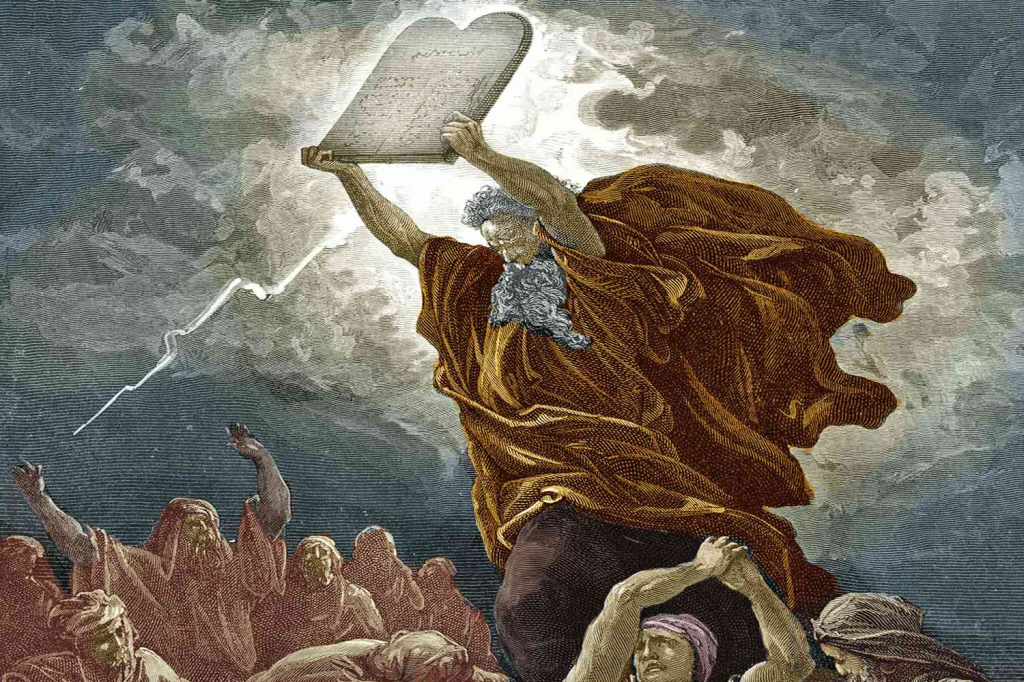
How many Christians name Leviticus as their favorite book in the Bible? None, I will bet. Why? Because Leviticus is a boring collection of meticulously detailed rules and regulations for every facet of ancient Hebrew life. There are long lists of what a God-fearing Hebrew could and could not eat. Detailed rules about how to sacrifice a proper offering. Rules about sex. There are even rules about menstruation! The ancient Hebrew knew exactly what he could and could not do to remain in the good graces of Yahweh.
However, not one word is said about how Hebrew parents could be assured of the eternal security/salvation of their infants and young children if they died. Isn’t that odd? Wouldn’t you think that the most important issue for any Hebrew parent would be to know the means by which Yahweh would “eternally save” their children if their infants and toddlers died young?
Nope. Not one word.
Why? I think there is a very obvious answer: ancient Hebrews did not believe in an afterlife. You followed Moses’ Law in this life to be blessed in this life. There was no expectation of an afterlife.
Evangelicals and some other Christian groups point to King David’s comments after the death of his child to claim that ancient Hebrews did believe in an afterlife:
[David] said, “While the child was still alive, I fasted and wept, for I said, ‘Who knows whether the Lord will be gracious to me, that the child may live?’ 23 But now he is dead. Why should I fast? Can I bring him back again? I shall go to him, but he will not return to me.” –II Samuel 12:22-23
Did David mean that he would eventually join his infant son in Heaven (or Paradise)? Or was David saying that he would join his son in the grave? Who knows, but the second interpretation certainly fits with a worldview that does not include an afterlife. (It is interesting to note that the evangelical teaching of the salvation of all infants and children who die before the Age of Accountability is built upon this one vague Old Testament passage!)
In summary, the evidence strongly indicates that the ancient Hebrews did not believe in an afterlife. They worshipped and obeyed Yahweh to be blessed in this life, not to attain eternal life in an afterlife. The concept of an afterlife did not develop until the exile in Babylon or thereafter. Christian apologists will say that the delayed appearance of the concept of an afterlife in the Old Testament is an example of progressive revelation. I say it is apologetic BS. Heaven and Hell are pagan concepts adopted from the nations who conquered and dominated the Holy Land after the destruction of Jerusalem in 586 BCE, nations and cultures who did believe in an afterlife.
The absence of any means for the eternal salvation of dying infants in Moses’ Law is strong evidence that belief in an afterlife did not exist in ancient Judaism.
.
.
.
.
.
.
.
.
.
End of post.
To my understanding, the Old Testament speaks not of an afterlife in God’s domain (in heaven). Jews claim, “We are not in the business of getting to heaven. We are in the business of bringing heaven down to Earth.” For proof of that, I offer the following:
Psalm 37:28-29 – For the Lord loveth judgment, and forsaketh not his saints; they are preserved forever: but the seed of the wicked shall be cut off. The righteous shall inherit the land and dwell therein forever.
Deut 11:20-21 – And thou shalt write them upon the door posts of thine house, and upon thy gates: That your days may be multiplied, and the days of your children, in the land which the Lord sware unto your fathers to give them, as the days of heaven upon the Earth.
God promises a New Covenant: true peace on Earth. What the forgers of Christianity concocted is an affront and an insult to God, who gives absolutely no indication that He wants to share His abode with us! I am an agnostic who believes the Old Testament is a throwback to older religions because the OT sounds like a ripoff of the Epic of Gilgamesh.
LikeLike
Thanks for the comment. I agree with you.
I take the above passages to say that “the righteous” shall dwell in the land forever, not that each righteous person will live forever in the land.
LikeLike
I also agree about the “ripoff,” However, I often wonder why humans need a god at all? Whether in a “heaven” or on good ol’ solid terra firma.
LikeLike
Leviticus is as boring as Reverend Lovejoy’s sermon on constancy:
LikeLike
Funny!
LikeLike
Progressive revelation may be the most self-destructive idea Christians have come up with. They explain away how God contradicts himself in the Bible (“He wasn’t changing his mind; he was updating his policy!”), but then how do we know that Christians today have it right? Maybe Christians a thousand years hence will look back and laugh at 21st-century Christians, just like today’s Christians shake their heads at God’s demand for animal sacrifices or genocide.
https://onlysky.media/bseidensticker/contradictions-in-the-bible-no-its-progressive-revelation/
LikeLiked by 1 person
Progressive Revelation = wait for it … Mormonism! A new revelation and testament for modern times!
LikeLike
Or maybe David Koresh. Or maybe Jim Jones.
LikeLike